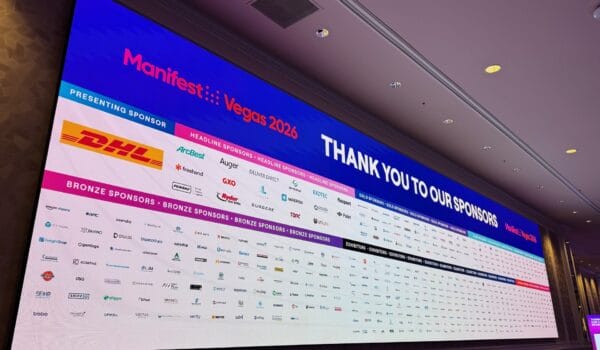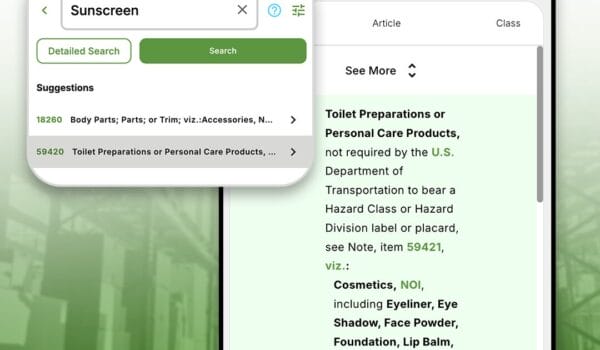As the National Motor Freight Classification (NMFC®) evolves, here’s how to stay proactive, not reactive, when it comes to freight bills.
With the July 19 updates to the NMFC now in effect, the less-than-truckload (LTL) industry has taken a major step forward toward a more accurate and transparent system. These changes reflect today’s freight realities. As shipping practices, packaging materials, and density profiles evolve, so too must the classification structure that supports fair and accurate rating.
But modernization often comes adjustment and for many, that means managing new variables in freight bills
That’s why the Digital LTL Council—part of the National Motor Freight Traffic Association, Inc.’s (NMFTA)™ Digital Standards Development Council (DSDC)™—has released a timely new API Standard designed to help the industry adapt with confidence and clarity.
Introducing the Preliminary Freight Charges (PFC) API Standard: A proactive tool that gives all parties visibility into freight bill charges as they evolve throughout the shipment lifecycle.
Why This Matters Now: Visibility in a Time of Transition
The NMFC updates improve transparency and consistency in how commodities are classified—but they also introduce new considerations around reweighs, reclassifications, and accessorials. These adjustments can sometimes lead to differences between the original bill of lading (BOL) estimate and the final invoice.
Ultimately, the PFC API Standard solves a pressing pain point: billing surprises that hit weeks after pickup.
The PFC API is designed to address this head-on by offering:
- Real-time charge notifications for reclassifications, accessorials, and more;
- Improved alignment across carriers, shippers, and 3PLs; and
- Fewer surprises at invoicing time.
“The value to carriers goes beyond customer service—it’s about operational efficiency, better cash flow, and being seen as a digital leader,” said Keith Peterson, staff liaison for the DSDC and vice president of operations for NMFTA.
Carriers: The Data Starts with You—And So Does the Power to Fix Potential Mishaps
Carriers are central to the success of this API Standard. You already possess the most accurate, real-time shipment data. Now there’s a structured, standards-based way to share it—proactively.
With the PFC API, carriers can:
- Communicate charge updates clearly and automatically;
- Reduce the volume of billing-related support calls; and
- Accelerate invoice approvals and shorten days sales outstanding (DSO).
And you don’t have to build it from scratch. NMFTA has already done the heavy lifting—standard field definitions, change triggers, event codes, and backward compatibility with eBOL.
“We knew the NMFC changes would bring more precision to classification. But precision also means the need for better communication during the shipment lifecycle. That’s exactly why we helped define the PFC API,” said Kelly Koller, product owner for Estes Express Lines and team lead for the PFC API Standards Development Workshop.
Shippers: Gain Control, Even as Charges Evolve
For shippers, clarity into charges as they develop, not just after invoicing, is a major win.
The PFC API empowers shippers to:
- See reclassification or accessorial changes early;
- Communicate adjustments to customers before they escalate; and
- Improve accruals and eliminate invoice reconciliation surprises.
3PLs: You’re in the Middle. Protect Your Margins, Guide Your Partners
3PLs play a vital role in bringing all parties together—and often carry the administrative burden when data gaps exist. When charges change without warning, you’re the one caught resolving the description discrepancies, managing disputes, and eating admin costs.
This API gives you the visibility and leverage you need.
And more than that—it gives you the power to push for change.
The PFC API gives 3PLs a new advantage:
- Real-time insights into billing changes across carrier partners;
- The ability to alert customers before final charges are set; and
- A stronger case to encourage carrier adoption.
“Customer service is #1 at TQL, so we are excited about the Preliminary Freight Charges API. We know the connection will give earlier visibility to shippers and will benefit carriers by decreasing time to payment,” said Jessica Siemer, executive sales director LTL at Total Quality Logistics and member of the PFC API Standards Development Workshop.
A Moment for Early Movers
Adoption of API standards is accelerating. A recent study found that:
- 82% of logistics companies have increased tech investment in the last 3 years, especially around digital documentation and visibility (Supply Chain Management Review)
- Digital collaboration standards like APIs are the #1 investment priority for 37% of transportation CxOs (Trigent TLS 2025 Research).
Early adopters of the PFC API won’t just solve a short-term NMFC problem—they’ll set the new bar for freight charge transparency.
Get Started Today
The NMFC changes are modernizing LTL freight classification. The PFC API helps ensure your billing and operations keep pace.
Don’t wait for the invoice to find out what changed. Download the PFC API Standard now and start delivering clarity, not corrections.
Download the API Standard
Learn how it works and how to implement it
About the Digital LTL Council
The Digital LTL Council, part of the National Motor Freight Traffic Association (NMFTA)™, brings together carriers, shippers, logistics providers, and technology partners to develop digital standards for the less-than-truckload (LTL) industry. The Council’s work focuses on improving communication, data accuracy, and efficiency throughout the shipment lifecycle.






